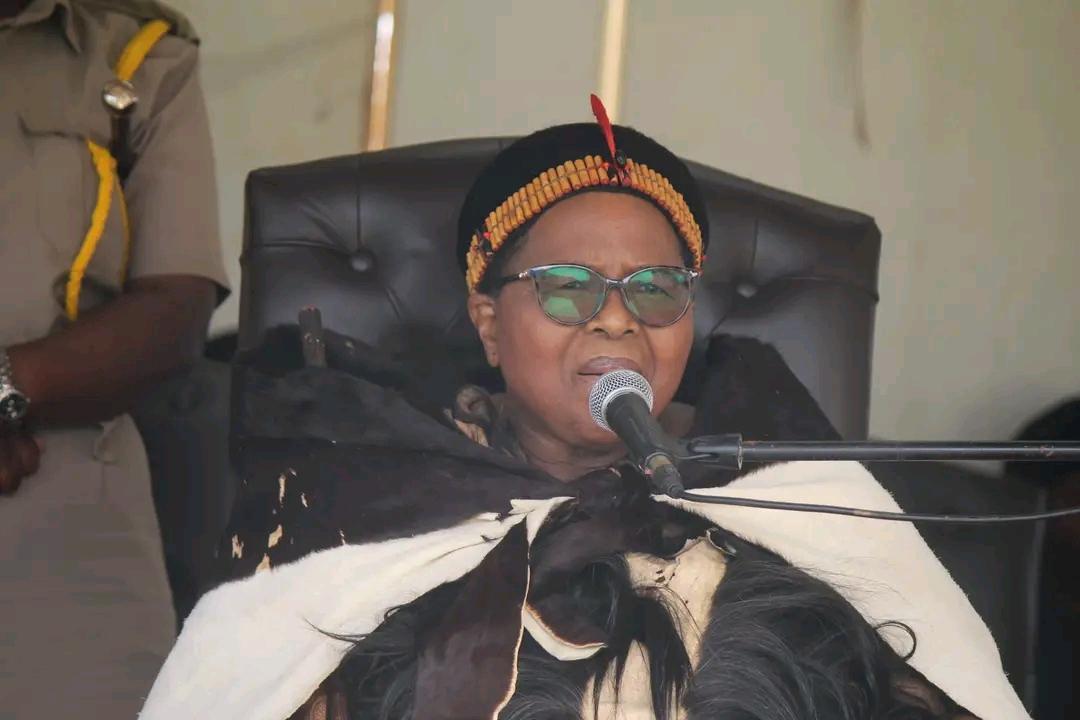Africa-Press – Eswatini. Although I had intended to have a second take on the crisis of the appointment of the successor to Gideon Mhlongo in Mbabane, I was inspired by the Easter spirit and the preaching at the national church on Friday, to now focus on the topic of forgiveness – so profound in the life of Christians and many others who are freely spirited to be burdened by holding on to grudges and the feeling of being wronged.
I was part inspired by the reaction to my piece on the impasse at the municipal chamber in Mbabane, especially from those who saw the article as being a call for an end this crisis – and saving us all the uncertainty over the choice of the rightful candidate for the position.
There are a few, admittedly, who failed to see the article for what it was intended, choosing only to take umbrage over the criticism instead of the necessary introspection over their own role in the fracas.
For a second, I thought, therefore, it was necessary to address myself to the critical issues that need to be addressed for the city council to move forward in this exercise, and why it is important that councillors take a firm look at themselves in the mirror.
This is important in underscoring why they cannot escape the criticism of their actions in this sorry episode, and why any other decision is impossible to take because of their meddling and personal interests in the case.
I shall not bother myself with those who took the article personally, or the few councillors who apparently saw this as an attack on them, rather than to contextualise the article on the role they have played that has shrouded the recruitment exercise in controversy instead of it being an opportunity for the city council to put itself out there as a shining example of professional and corporate governance integrity.
Instead, the city council and the capital of this country has attracted the unwanted tag of being incapable of overseeing a simple recruitment exercise, with its councillors missing the opportunity to demonstrate political maturity in this debacle.
What is painful is that they still miss this important point and are so fixated in their personal egos. Given the reaction of the councillors, it is fair to say that it will take them as a long as the coming of the son of man for them to see this point.
Speaking of the son of man, one felt it was more important to focus on the theme for the national service on Friday at the national church, this being an easter weekend no-gal.
moved
I found it not just timely or relevant, but a necessary conversation that this nation needs as part of its healing process, given where we come from.
I was quite moved by the preaching from the Queen Mother and the message she delivered this year and could not resist the urge to delve into this conversation given its deep meaning to the process of healing we are desperate for.
I say desperate for because it has been inescapable for years how much we have a desire to bridge the gap that was evident during the period of our most trying time.
It has been evident since then that we as a nation are cognisant of the scars of the past few years and the division that was sowed by the forces that sought to exploit the system’s weaknesses.
As such, we have needed to regroup, to retrace the steps and to reset once more. The Sibaya conversations remain one of the most crucial interventions to heal the wounds and commit to a renewal process.
That is in essence, why the government of the day has a mandate to address the issues arising out of service delivery, and to ensure that this beautiful nation rediscovers its sense of unity and peace. It is on this basis that the conversation about forgiveness takes a little bit more significance and meaning. It is not out of coincidence that it is a theme for this year’s Good Friday church service.
I thought for a second that it was picked for a reason, and listening closer to the Queen Mother’s message, felt that it was a careful topic for us all to engage in.
I was particularly moved by the overall message of forgiveness, and the emphasis that forgiveness isn’t an easy thing to do.
That we must forgive in our time of difficult and pain. In fact, the prime minister nailed it further when he introduced the Queen Mother, emphasising on the significance of how Jesus Christ found it necessary to ask for those who had wronged to be forgiven – while having been nailed on the cross.
It is important to put this theme in its context of the political unrest, and how much we as a country need to forgive to move forward – or, as was the theme, forgive when it is difficult to do so.
We have needed to have this conversation in order to be able to move on and embrace what lies ahead if we do forgive.
The challenge is, for all that we have experienced, we still find it difficult to engage and open up about what happened – about the losses we all suffered, individually and as a collective. We have not had the honest, robust conversation that helps us to challenge ourselves to forgive. There are many people who have suffered in silence who need to forgive but need the opportunity and the moment to be able to ask themselves to.
forgive
As one who understands what peace comes with being able to forgive those who wrong us, I understand fully the importance of forgiveness without being asked to forgive.
I can relate to why we need to learn to forgive and why this is an important message for the country. Her Majesty spoke about how forgiving someone who has wronged you is such a difficult thing, but pointed out that this was what Christ had showed us could be done. “Jesus forgave us while going through the most difficult conditions anyone can endure,” she told the gathering at the national service.
This is to say, forgiving isn’t easy. Forgiving is in itself, painful. However, I thought too that forgiveness itself is a very conscious decision.
You do not forgive out of nothing. You forgive because you have worked it out, and regardless of the circumstance, you are willing to do it. It is important that we allow ourselves the time to do it and to be deliberate about it. However, it is very important to learn how to do it.
As Indlovukazi has challenged us, we need to start to learn this process, for it is what unlocks the process to finding the peace we crave.
Fundamentally, once we are people who know how to forgive, we will easily accept the reality that it is the ones closest to us who need our forgiveness.
But more importantly, that forgiveness is at the core of being able to move on, for I am sure, had Christ not forgiven those who wronged him, ‘for they did not know what they were doing’, his task would not have been complete.
Happy Easters to all readers of this column.
For More News And Analysis About Eswatini Follow Africa-Press







